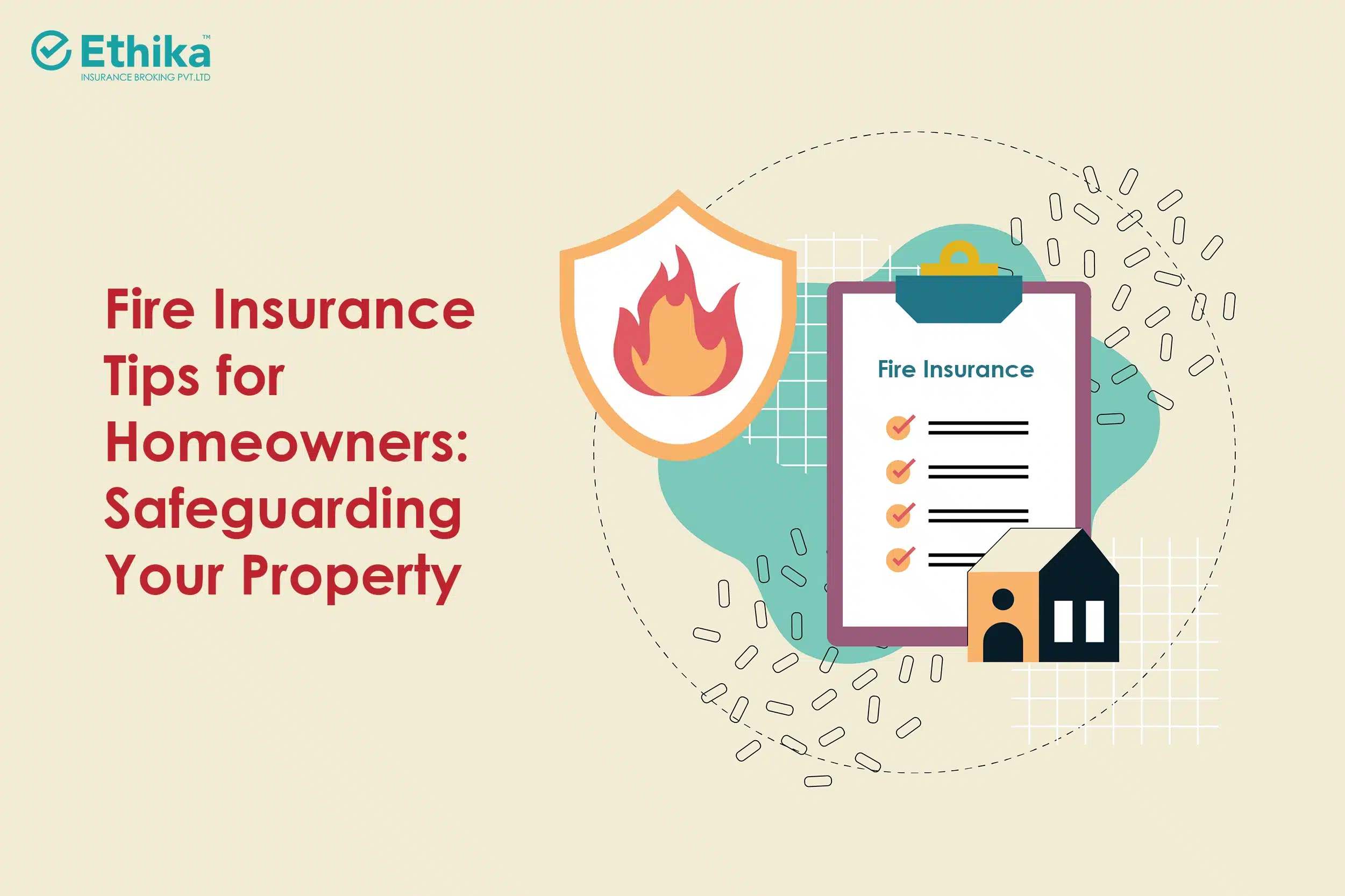
Fire insurance is the basic and oldest form of property insurance available in the World. It would be almost impossible to imagine a property insurance policy without a fire insurance plan. Given the importance of fire insurance policy, it is advisable to understand how to get the most out of your fire insurance policy.
What’s on this page?
Select the Correct Sum Insured:
The most important thing that should be kept in mind before taking a fire insurance policy is the sum Insured required under the policy. Sum Insured in a property insurance policy should be decided either on market value basis or reinstatement value basis. It is simple to remember that immovable properties should be considered for reinstatement value basis whereas movable properties should be considered on a market value basis. In case of properties, particularly residential properties, property insurance can be taken for a long period of time i.e. up to 10 years.
In such cases, if the property value is decided on today’s value basis then any claim that happens tomorrow could lead to under insurance. For example, if you calculate property value as Rs.10 lakhs and considering inflation the property value increases to Rs.12 lakhs, the property becomes underInsured and even the Rs.10 lakhs sum Insured would not be payable under the policy.
The sum Insured under the policy should be decided based on the reinstatement value i.e. the cost that would be incurred for constructing the similar property in case of damage. In general, for houses, the structure would be Insured on reinstatement value basis and the content of the house on market value basis. In case of market value basis, depreciation would be factored at the time of claim settlement whereas there would be no depreciation in case on reinstatement value basis.
Policy Period:
The other thing to be considered is the policy period. A home insurance policy can be taken for short term as well as long term. A short term policy is given for a period of 1 year whereas a long term policy can generally be taken for more than a year. One should decide how many years the policy should be taken for.
This could get tricky when you decide to include contents as well as structure together. Structure can be Insured for a longer term but contents can be Insured for a short term. So, if you want to combine both contents as well as structure then you may not be able to take policy on a long term. In such cases you may decide to take separate property insurance plans for structure and content.
Also read: Get Fire Insurance Policy Premium Rates for your Home
Safety Measures:
Safety measures should be considered as these could reduce the premium payable as well as help in loss reduction. For example, if you have safety measures such as fire extinguishers, CCTV cameras etc. policy premium could be reduced based on underwriting standards and on the other hand could be utilized to respond immediately in case of a loss or damage. For example, if you have installed CCTV cameras, robbery or theft could be resolved with ease and would help both the Insured as well as the insurance company.
Contact Insurer Immediately:
One of the important points for fire insurance policyholders is to respond immediately in case of a damage or loss. Insured should contact the Insurer immediately and inform them of the loss so that the claim could be processed immediately. If the claim intimation is delayed from the Insured’s end, it could further delay the process. In addition, the greater the delay the more chance of further damage to the property. Keeping all these things in mind, one should immediately contact the insurance company in case of loss or damage.
Opt for Deductibles:
The other important thing to remember by property owners is to opt for deductibles in case of loss or damage. Deductibles could either be voluntary or compulsory. Every property insurance policy would have a compulsory deductible amount that should be adhered to by the Insured. On the other hand, voluntary deductible has to be chosen by the Insured. Higher the deductible, higher would be the discount under the policy. The deductible is the Insurers way of making the Insured a partner in the risk. Deductibles should be taken in a way that it shouldn’t become a hindrance at the time of claim settlement forcing the Insured to bear a considerable amount.
Keep Paying Premiums:
Finally, at the end of the day it is important that the policy remains live. For this, one should ensure that the premiums are paid on time so that the policy is live at any point of time.
Frequently Asked Questions:
What happens to the fire insurance policy when I sell my house?
When you are no longer the owner of the property, automatically your insurable interest in the property would be lost. So, it is advisable to discontinue the policy and claim any refund if applicable from the insurance company.
What is the start date in a fire insurance policy?
The start date in the fire insurance policy would be the policy start date as mentioned in the policy. In general it would be on or after receiving the premium under the policy.
Will my fire insurance cover the existing damages?
No. Fire insurance policy would not cover the existing damages to the property as the damages have not occurred during the current policy period.
What should I do if I have 2 long term home insurance plans ?
You can decide to continue one of them by adjusting the sum Insured under the policy so that the sum Insured resonates with the reinstatement value of the property.
Can I increase or decrease the sum Insured?
Yes. You may choose to increase the sum Insured during the policy period but decrease would not be allowed by the insurance company.